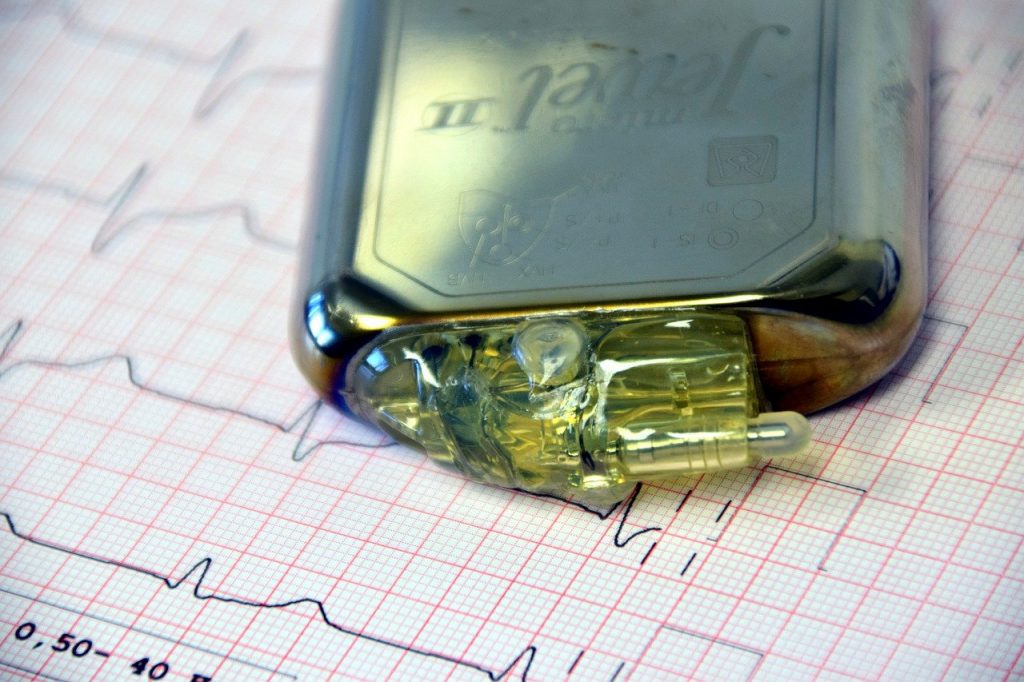FDA warns, magnets in cell phones and smart watches may affect pacemakers and other implanted medical devices.
“Some consumer electronic devices, such as certain cell phones and smart watches, include high field strength magnets. Recent studies have shown that consumer electronic devices with high field strength magnets may cause certain implanted medical devices to switch to “magnet mode” and suspend normal operations until the magnet is moved away from the medical device.,” – FDA said.
Administration said, that many implanted medical devices are designed with a “magnet mode” to allow for safe operation during certain medical procedures such as undergoing an MRI scan.
Precautions For Consumer With Implanted Medical Devices
The main recommendation for patients is to keep any consumer electronic devices that may create magnetic interference, including cell phones and smart watches, at least six inches away from implanted medical devices, in particular cardiac defibrillators. Often implanted devices have FDA-approved information written for patients, and warns patients about possible risks.
People with implanted devices may want to take some simple precautions, including:
- Keep the consumer electronics, such as certain cell phones and smart watches, six inches away from implanted medical devices.
- Do not carry consumer electronics in a pocket over the medical device.
- Check your device using your home monitoring system, if you have one.
- Talk to your health care provider if you are experiencing any symptoms or have questions regarding magnets in consumer electronics and implanted devices.
“Ensuring the safety of our nation’s medical devices is a cornerstone of our consumer protection mission, especially as technology continues to advance. As part of this work, the agency reviewed recently published articles describing the possibility that certain newer cell phones, smart watches and other consumer electronics with high field strength magnets may temporarily affect the normal operation of implanted electronic medical devices, such as pacemakers and implantable defibrillators. Based on our review, we decided to conduct our own testing to confirm and help inform appropriate recommendations for patients and consumers,” – FDA comment.
MedWatch
MedWatch, the FDA’s medical product safety reporting program for health professionals, patients and consumers. MedWatch receives reports from the public and when appropriate, publishes safety alerts for FDA-regulated products such as:
- Prescription and over-the-counter medicines
- Biologics such as blood components, blood/plasma derivatives and gene therapies.
- Medical devices such as hearing aids breast pumps, and pacemakers.
- Combination products such as pre-filled drug syringe, metered-dose inhalers and nasal spray.
- Special nutritional products such as dietary supplements, medical foods and infant formulas.
- Cosmetics such as moisturizers, makeup, shampoos, hair dyes and tattoos.
- Food such as beverages and ingredients added to foods.
Besides that, MedWatch will be receiving new information about magnets in cell phones and smart watches effect on pacemakers and other implanted medical devices. “As a result of these actions, today we’re taking steps to provide information for patients and health care providers to ensure they are aware of potential risks and can take simple proactive and preventative measures.
We believe the risk to patients is low and the agency is not aware of any adverse events associated with this issue at this time. However, the number of consumer electronics with strong magnets is expected to increase over time. Therefore, we recommend people with implanted medical devices talk with their health care provider to ensure they understand this potential risk and the proper techniques for safe use,” – FDA said.

